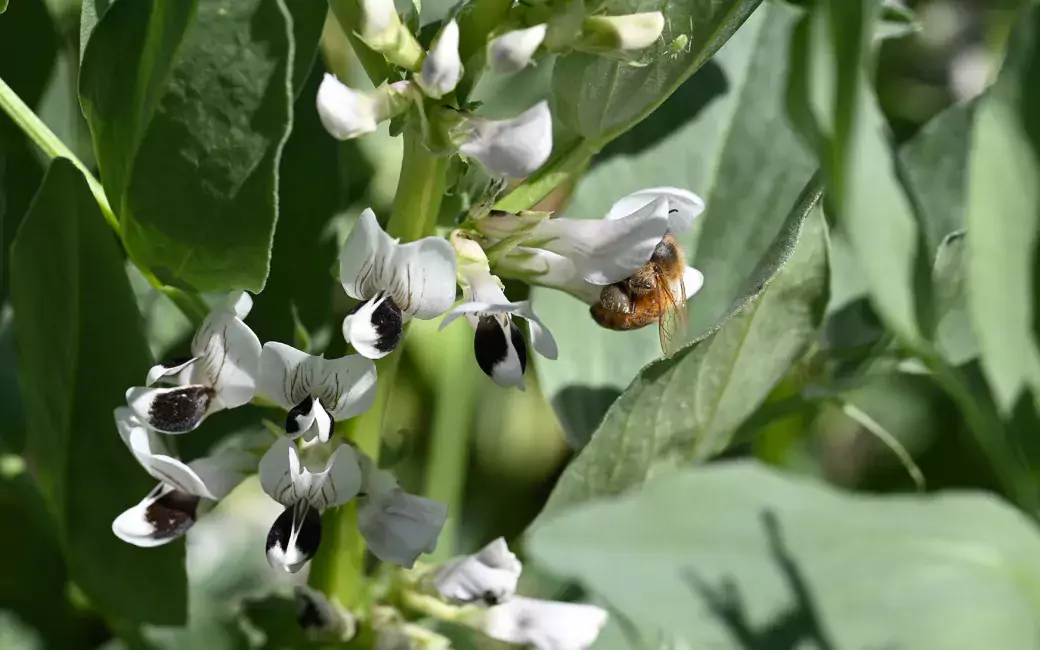An international team of researchers has managed to read the whole genome of faba bean, and to put the new genome to immediate use, finding a key gene for seed size, an important food characteristic.

Faba bean is an ancient, sustainable source of protein that is globally important today and increasingly used to make meat substitutes in Finland. However, its enormous genome-four times that of humans and 30 times that of rice-has been impossible to read as a whole, hindering efforts by scientists and breeders to find genes that would make it easier for farmers to grow and for industry to process into delicious foods.
Using cutting-edge technology, an international team of researchers, led by the Universities of Helsinki, Aarhus (DK) and Reading (UK), and by LUKE (Natural Resources Institute Finland), have now managed to read and assemble the whole genome of faba bean. They put the new genome to immediate use, finding a key gene for seed size, an important food characteristic.
Towards plant-based diets
"An improved faba bean will contribute to a green bioeconomy by promoting sustainable food systems. To meet the growing demand for protein while preserving biodiversity and reducing agricultural greenhouse gas emissions, consumption of animal-based foods will have to decrease, while the proportion of plant-based food should increase. Faba bean can be a big help in this," says Alan Schulman, a Head of Research at the Institute of Biotechnology, University of Helsinki and Research Professor at Natural Resources Institute Finland (LUKE).
Food production is responsible for a quarter of the climate-changing greenhouse gas emissions, of which the largest contribution comes from animal-based production. Legume-based plant protein grown for Europe, in Europe, confers many benefits and faba bean is the legume best suited in the Nordic and Baltic countries.
"Faba bean is a highly promising basis for meat alternatives and new vegetarian and vegan foods for northern Europe. It has a great potential, but it can only work if farmers want to grow it and people want to eat it," Schulman says.
Tools for a better bean
According to farmers, consumers and researchers faba bean, however, suffers from several challenges. Drought and disease resistances are needed; these problems are increasing due to climate change and lead to unstable yields on farms. The "beany" flavour should be reduced or eliminated, and processing and nutritional quality improved.
"The lack of a genome has hindered development of the tools for breeders that would allow rapid tackling of these problems. Faba bean has been studied by only a small community and has seen little investment so far. Things are changing now. The new genome is enabling the research team to address nutritional and processing quality, flavour and the sustainability traits need for the future climate," Schulman sums up.
Original article:
The giant diploid faba genome unlocks variation in a global protein crop. bioRxiv 2022.09.23.509015; DOI: 10.1101/2022.09.23.509015 Nature accepted 03.02.2023.
Funding
The Jane and Aatos Erkko Foundation (JAES) is funding a "pan-genome" project at the University of Helsinki and LUKE to build a knowledge base that covers the global diversity of the crop, while Novo Nordisk Foundation is funding work to address flavour issues and NordForsk to address sources of earliness, disease resistance and drought tolerance, both at the University of Helsinki.






